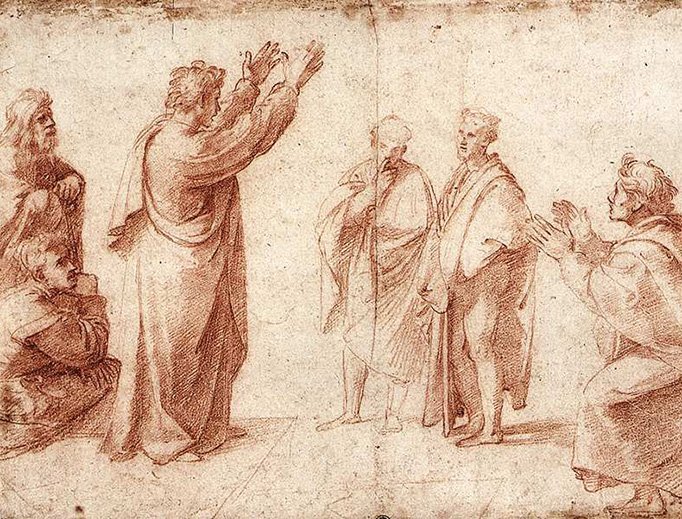The Genealogies of Modernity Journal
Cruel and Unusual: A Supreme Dilemma of Eighth Amendment Jurisprudence
Evidently, the language which would be assumed under the Eighth Amendment originates from the intent of delegates to secure proper respect for the unalienable rights of all people.
Jackson Jannell on liberty and death
Is Liberalism Dead? Part II
The convergence of liberalism and gnosticism has fundamentally reshaped our political landscape.
Andrew Latham glimpses a “Gnostic Leviathan”
Is Liberalism Dead? Part I
[T]he particular form of liberalism we see today is influenced by what can be described as a contemporary form of gnosticism.
Andrew Latham on the myth of post-liberalism
Exploring “Off-Liberalism”
Liberalism is often taken to be essentially about the promotion of radical individual autonomy, but might this understanding of liberalism be only one kind of liberalism?
Beatrice Institute interviews Fred Bauer
Uncorking Some Scruton
Scruton, looking at our days “sub specie aeternitatis,” even thinks that this time of decay gives us an opportunity to work on the behalf of religion, morality, and culture that “no previous generation has been granted, and which no future generation may desire.”
Julian Kwasniewski reviews Against the Tide
Critical Theory and Ancient Political Philosophy: Part III
Philosophy does not point toward an abstract transhistorical truth for humanity, but rather to a murky, historically contingent truth… the truth of historical and material conditions.
Joseph Natali on Horkheimer’s Discontinuity with the Ancients
Critical Theory and Ancient Political Philosophy
It is only through the practice of an explicitly critical philosophy that a wholly stagnant self-affirming social order can be avoided.
Joseph Natali on Horkheimer critical theory and the meaning of philosophy
Critical Theory and Ancient Political Philosophy: Part II
For Horkheimer, his method of critical theory, are the truest continuation of the initial philosophic project of the Western tradition.
Joseph Natali on Max Horkheimer and the critical role of Socrates
What is the Task of Political Theology?
The political is a lived medium through which we gain insight into the theological concepts that inform the political as one human hierarchy amongst others (economic, social, and so on).
Ali Harfouch on recovering the political through political theology.
Modernizing the Monarchy
Past writers have updated Arthur for new audiences without sacrificing his essential kingship. If that's possible for Arthur, it should be possible for Charles and the British monarchy.
—Gabriel Schenk on what King Charles can learn from King Arthur.
A Poet of Philosophy and Prayer
Reading her poetry, one follows Pinkerton’s journey away from Eros and the self through prayer and philosophy and the contemplation of existence, time, the physical world, and faith.
Mary Grace Mangano’s review of Helen Pinkerton’s poems
The New (Biomedical) Normal
We are witnessing a dehumanization of society driven by a covert, reductionist ideology. We need a return to a non-reductionist anthropology, rooted in classical conceptions of the human good.
Xavier Symons on public health, COVID, and Kheriaty’s ‘The New Abnormal’
All Present in the Nowhere Place
Virtue is a matter of acting correctly according to whatever circumstances arise. The state which legislates the need to choose out of existence legislates virtue out of existence.
Daniel Fitzpatrick on Brave New World and the 80 Years’ War for Virtue
Inventing the Sovereign State
In telling a story that accounts for sovereignty, we can think through the possibility of a politics without sovereignty and the implications that such a politics would have on liberatory politics
Ali S. Harfouch on modernity, Islam, and second creators
Augustine, Violence, and the Novelty of Machiavelli
Machiavelli follows Augustine by demythologizing violence, stripping it of the gloss of legend and heroism. He departs from him by adding that it is necessary, excusable, and worthy of imitation.
Brian Harding on violence and political reality
Deferring the End
Religion, and the apocalyptic motifs of the Christian Gospels, is that which alone can send us back into the world with a renewed strength for political engagement and activism.
Tim Howles on the eschatological roots of political renewal
The Sacredness of the Person
Only a dialectical approach between the Enlightenment and Christianity is capable of grasping the historical dynamics of the emergence of human rights within the European context.
Sharon Kuruvilla reviews Hans Joas’s The Sacredness of the Person
The Diverse Roots and Routes of Liberty
There are many roads to modern liberty, but some focus not on the triumphant will but on the richness of the person and our commitments to one another.
Fred Bauer on an off-liberalism marked by care, duty, and solidarity rather than autonomy
Developing an Off-Liberalism
Rather than being merely anti-liberal or anti-postliberal, the off-liberal reveals (and perhaps revels in) the heterogeneity of sources for the so-called “liberal” order.
Fred Bauer on developing an off-liberal approach to modern political predicaments
Giving Utopia Its Due
Abjuring the legacy of utopianism distances us from one of the prime affective and intellectual forces motivating such modern ideals as popular sovereignty, human rights, and social progress.
Daniel Cunningham on the need for utopias























